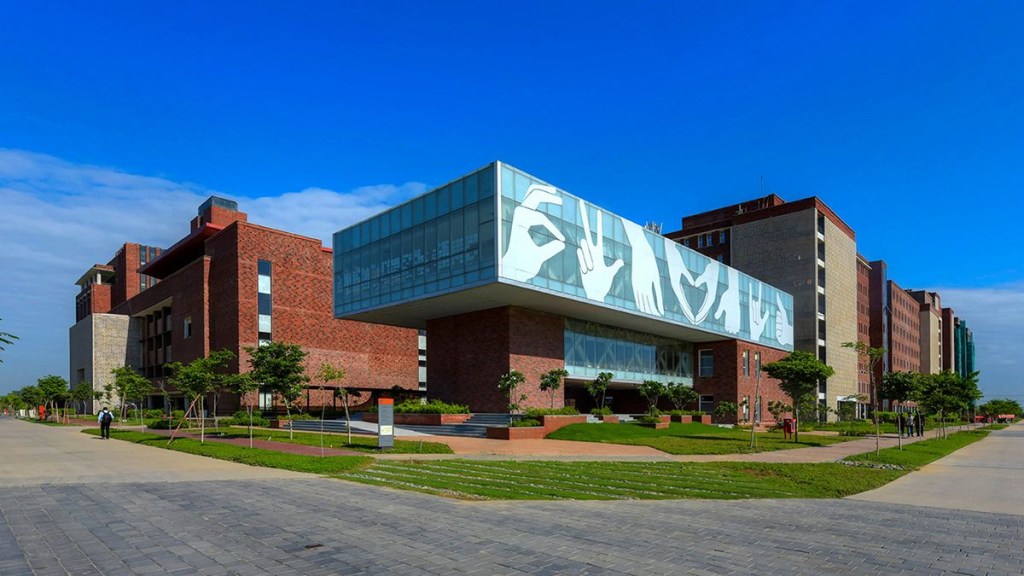Ashoka University, a young but influential institution, is celebrating a decade since its inception. While it pioneered the modern liberal arts education model in India, the university has also evolved into a research hub. To discuss this journey and the vision for the next decade, we sat down with Prof Somak Raychaudhury, the vice-chancellor of Ashoka University.
Liberal arts edge
Prof Raychaudhury was quick to point out that the liberal arts model, which allows students to liberally sample various subjects, is far from new, tracing its origins back a century to institutions like Harvard and Chicago. Ashoka, however, remains a pioneer in the Indian context, maintaining a distinct edge.
“Unlike most other liberal arts universities set up in the last decade, at Ashoka, the incoming cohort doesn’t decide on their major till the third semester,” Prof Raychaudhury explained. “We don’t recruit students to economics or physics; we bring them in, and for a year and a half, they sample all subjects – from foundation courses and critical thinking classes to principles of science, economics, politics, society, and Indian civilisation.” This extended period of exploration allows students to make an informed career choice, a core principle that will define the university’s future.
The tenure-track model
Research has been an integral part of Ashoka’s identity from the very beginning. The university distinguishes itself by following the American-style tenure-track system, a rarity in India. Prof Raychaudhury offered an explanation of the challenging yet rewarding model.
“Tenure-track is an academic career path, usually starting as a junior assistant professor, where a faculty member works for six years trying to build up their research and teaching profile,” he said. “During this time, they must excel at research, teaching, and service to the university. At the end of this period, they are reviewed; if successful, they are granted tenure, a permanent position with strong job security and academic freedom, or else their contract is terminated. It’s an evaluation period that leads to a lifetime job.” This system, he added, ensures that Ashoka’s professors are world-class researchers.
Doubling down on growth
Looking ahead, Prof Raychaudhury laid out an ambitious growth plan. The university currently hosts 3,000 undergraduates and 200 research or PhD students. The next decade will see a significant expansion.
“We’re aspiring to build 1,000 PhD students. And this 3,000 will double to 6,000-7,000 students,” he said. Similarly, the faculty strength of 200 will grow to 400-500.
University rankings
As far as rankings are concerned, Ashoka has seen fluctuations – it dropped from the 101-150 band in the NIRF India Rankings 2024 (Overall) to the 151-200 band in the 2025 iteration.
Prof Raychaudhury acknowledged the drop, but stressed that rankings are not the primary driving force. He attributed the change partly to other universities rising in the ranks and noted that Ashoka’s liberal arts set-up is not always geared to align with every parameter, especially those valued by the NIRF. “Possibly we have to work more on research parameters that these rankings value, such as the number of papers and citations, which will grow as we grow our research,” he admitted.
He, however, expressed optimism regarding the QS World University Rankings, where Ashoka has entered the 1,201-1,400 band in the 2026 edition. “The initial aim is to stay in QS rankings for 2-3 years and see where we are going. But yes, we want to be in the top-100, eventually.”
Upholding academic freedom
Finally, on the critical issue of freedom of speech, Prof Raychaudhury affirmed the university’s commitment to academic freedom for its students and faculty.
“Anywhere in the world, academic freedom is a very important part of university life, although in practice to make it happen is always a challenge for any university,” he noted. He clarified that while students can express themselves, the university maintains codes of conduct that place limitations on the “where and how” of expression for non-academic issues. However, he stressed: “In the context of academic activities, however, there are no restrictions.”
Ashoka University is charting a course for intensive growth, rooted in its pioneering liberal arts tradition while ramping up its research capabilities through a world-class faculty model. The next 10 years, he said, promise to be a period of transformative expansion for the institution.
